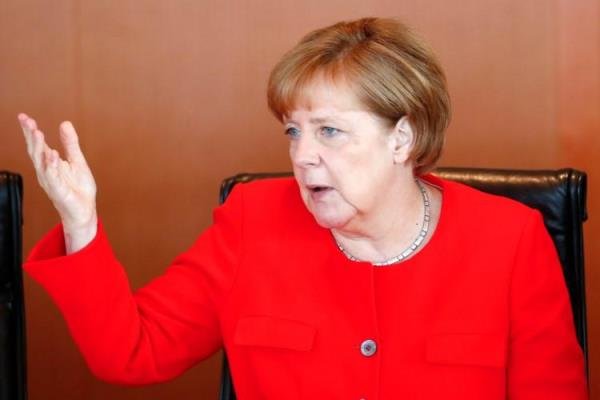Features of the Nuclear Deal as Defined by Merkel

Angela Merkel, German Chancellor, has recently stated important words on talks with Iran over the Joint Comprehensive Plan of Action (JCPOA), and the Europe's package of proposals which was accordingly offered to the Iranian officials! After her meeting with the Chinese Premier Li Keqiang, Merkel mentioned: We remain committed to the nuclear agreement. We think it was well negotiated. There is more that needs to be negotiated with Iran, but we think it is better to stay in the agreement. However, Berlin could do little to protect international companies against punitive US measures, it is up to individual firms to decide if they want to invest in Iran."
Decoding the recent remarks of the German Chancellor is not so difficult or complicated. With a brief overview on Angela Merkel's sentences, we can come to the picture of "JCPOA as defined by the European authorities". Accordingly, there are some points that need to be taken into consideration:
1. Angela Merkel and other European officials stressed that "THERE ARE MORE TO BE NEGOTIATED". These words indicate that the European troika is going to keep playing on the Washington's ground. By extending the negotiations, Merkel, Macron and Theresa May intend to limit our country's missile capabilities, and to decrease Iran's regional power.After the United States withdrawal from the nuclear deal, European officials are still talking about a "comprehensive agreement" with Iran: an agreement that has no purpose other than "isolating Iran as a powerful country".
Accordingly, Hassan Rouhani, the IranianPresident, said on his official website."Unfortunately the proposed package lacked operational solution and specific method for cooperation, and featured just a set of general commitments like the previous statements by the European Union,"
2. The German Chancellor has explicitly stated that Europe can't "guarantee" to protect international companies in Iran. It has often been said that legally, there is a difference between "commitment" and "guarantee". After Trump's withdrawal from the JCPOA, European authorities have continued to remain at the stage of "formal commitment" to the nuclear deal, and avoid to provide Iran with "objective assurances" in this regard. Even they try to make their commitments as vague and unclear as possible. It's obvious that the European authorities intendnot to perfectly fulfil the responsibility they have in the future. Between 2015 and 2018, European authorities have well proved that in their "lack of commitment towards JCPOA",they act just like the United States. The absolute cooperation of the European troika with the Obama and Trump governments in violating the JCPOA confirms this fact.
3. By Merkel's words, we realize that for the EU officials, the JCPOA is a line drawn between two given points: "getting more advantages from Iran" and "not providing any guarantees by Europe". Without a doubt, none of the European authorities could draw a clearer picture of the JCPOA better than Merkel! Interestingly enough, the diplomacy and foreign policy system of our country is still hopeful about the "European version of the JCPOA"! The fact is that there is no sign of Europe's providing any "guarantee for the fulfilment of the JCPOA". On the other hand, with its recent package of proposals,the European Union has proved that it basically has no intention of maintaining the nuclear deal as it was concluded in 2015.
Part of this has been related to the economic structure of Europe, and the fact that the public sector has been dominated by the private sector, and part of it returns to the decision of European countries. It is clear that European countries are planning to continue to keep the JCPOA as a "leverage" for making deals with the Donald Trump's government. Hence, the European troika and the EU don't have any intentions of coming to an agreement over Iran's nuclear deal in the near future. That's why the European officials insist that the EU final package of proposals will not be presented to the Iranian authorities before August (the first phase of US sanctions against Iran).
Finally, it should be noted that the existing evidences all suggest the inefficiency of the United Europe and its plans for the nuclear deal. Our country's officials would better take Merkel's recent statement as a "solid document" indicating Europe's inability to maintain the nuclear deal, and to stop their negotiations with the European Union on the JCPOA. The time has come for the Iranian foreign policy apparatus to find ways and means to face the United States and the European Union's violations of the nuclear deal.
